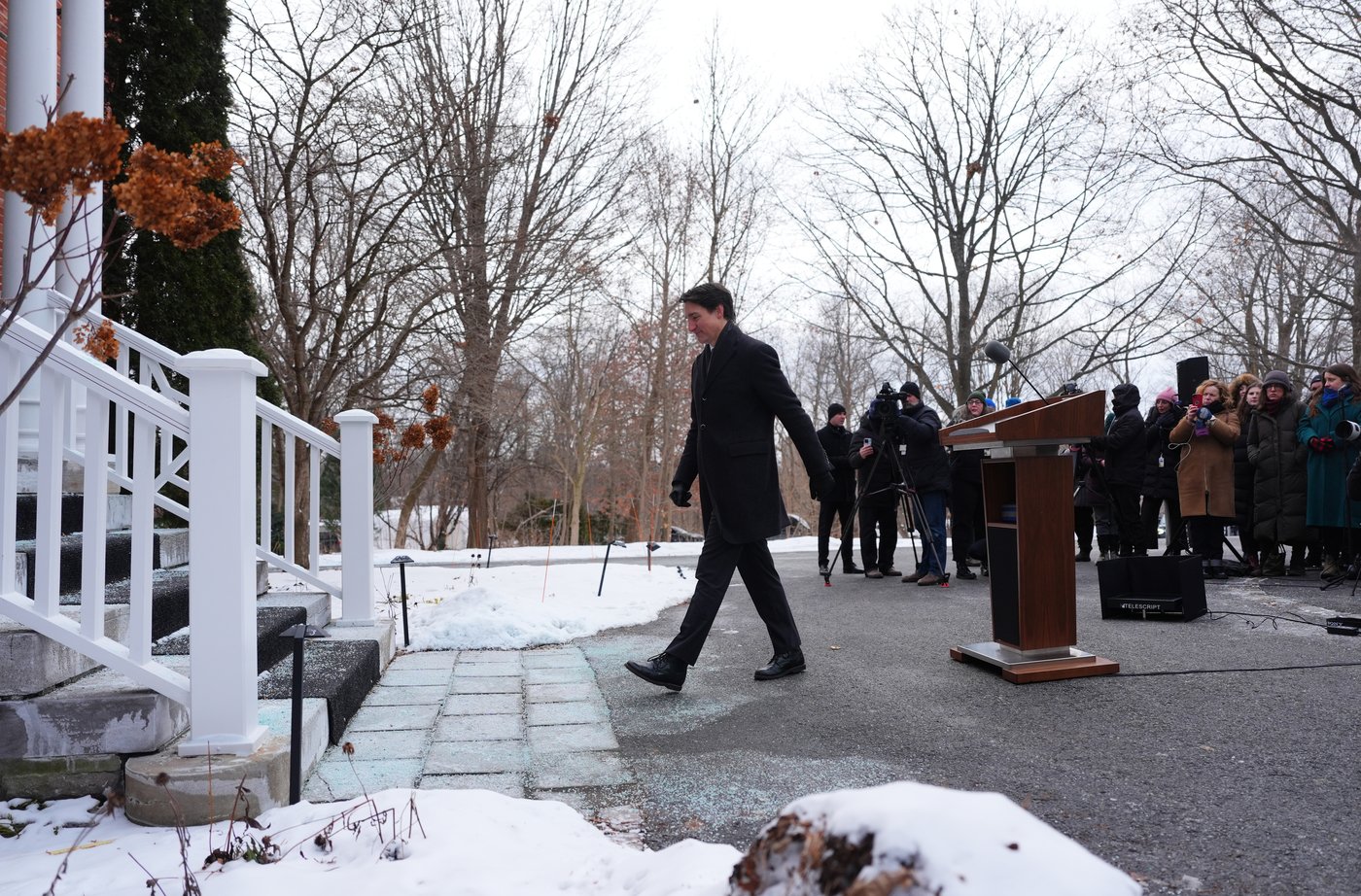Justin Trudeau spent the past year saying he wasn’t a guy who could walk away from a fight. Today, he is that guy.
Critics of Trudeau, and there are many of them, will be keen to cast this decision as an inglorious retreat — the man who fell to earth after hanging on too long. But that brand of criticism is nothing new. Back in 2014, delivering his first speech as leader to a Liberal convention, Trudeau said of the Conservatives: “For some reason, I drive them a bit nuts.”
That could well be the subtitle of any book Trudeau might want to write about his more than decade at the top of his party. Reaction to him has always been outsized, out of proportion, even.
In the beginning, it was the crowds he attracted, the celebrity buzz around him that even spread beyond this country’s borders. The son of a charismatic (and polarizing) politician, a boy who grew up at the prime minister’s official residence, Trudeau was greeted as a figure who everyone thought they already knew.
In later years, many remained convinced they knew his character through and through, but it was often in a less than flattering light. The antipathy toward him — of which he was highly aware — felt outsized too and highly personal. He was dismissed in the same way women politicians often are; judged on his hair or his intelligence; his authority attributed to strong men in the background. In more recent years, Trudeau became the funnel in which people wanted to pour all their frustrations, whether or not he had anything to do with them.
At one of those early, angry protests against Trudeau in the 2021 election, a good many people in the crowd in Cambridge, Ont. came armed with their own conspiracy theories about the prime minister — off-the-wall ideas about everything from his parentage to alleged criminal behaviour. They told reporters they felt sorry for them, that they didn’t really know Trudeau well at all. Again, there it was, this conviction that everyone knew who Trudeau really was, when in fact, he was a very wary politician who kept his circle of trust very tight. Maybe too tight — his willingness to cut Chrystia Freeland out of that circle helped seal his fate.
I first got to know Trudeau about 14 years ago, when he was a reasonably new member of Parliament for the Montreal riding of Papineau and the Star had asked me to moderate an event with his mother, Margaret Trudeau. She was releasing a new book in the fall of 2010, about her battles with mental illness and I thought this might be a good opportunity to get to know Justin Trudeau.
Curiously, Pierre Poilievre came up in this initial conversation.
First, let me give a bit of context. I went to the lunch in the parliamentary restaurant not knowing what to expect. Like many others, I was inclined to think Trudeau was more celebrity than substance. I would later come to learn he enjoyed poking holes in those kind of expectations. During his first sit-down chat in 2006 with Katie Telford, the woman who would go on to be his long-serving chief of staff, Trudeau said at the end of the encounter: “I’m not quite what you thought I was, am I?”
What I learned at that lunch was that Trudeau was extremely protective of his mother — very much the eldest son looking out for her. He told some of these stories, including some wrenching ones, in his 2014 book, Common Ground. I didn’t ask him too much about his father, figuring he was probably sick of people seeing him only as the son of Pierre Trudeau.
As lunch wound to a close, I did however ask a rather obvious question: what was it like to see Ottawa as an MP, as opposed to how he saw it while growing up around his father?
He said he had two answers to that: one, on the record and one, off the record. I said I’d take both. On the record, he said he was surprised how much he liked doing constituency work — that sitting down with people and helping solve their problems was something he enjoyed, and something he’d never seen his father do.
The off-the-record part was when Poilievre came up. Trudeau talked about how he couldn’t believe how full of themselves many MPs were, especially those of modest achievements. Poilievre, already a young career politician at 31 in 2010, was dining in the restaurant too and Trudeau waved his hand in that direction: “Like that guy,” he said, reminding me that Poilievre had recently thrown a tantrum at a Parliament Hill security checkpoint, and drove through the gate without stopping for a vehicle check. He had been forced to apologize.
“Who do those people think they are?” Trudeau said.
For years, I held up this story as an example of Trudeau’s limited patience for tantrum-throwers, or management by intimidation, as too many politicians are. But when I recalled it to him recently (to also say I intended to put it on the record some day), Trudeau said his impatience didn’t have to do with public tantrums, just overinflated egos on Parliament Hill; the people who could do with a dose of humility. Still it did indeed remain true throughout his time at the top of the Liberal party; you didn’t hear stories of Trudeau yelling at staff, as Stephen Harper and Paul Martin did, for instance.
This didn’t mean he was a pushover, though. I’ve observed this often: for a politician who drew praise and criticism for being emotional, Trudeau was not sentimental. He had no hesitation in expelling senators from the Liberal caucus, MPs accused of bad behaviour or cabinet ministers such as Freeland, no longer seen as useful to the team. And once someone fell out with Trudeau, they were really out.
Another thing I would soon learn about Trudeau; he wasn’t the kind of leader who enjoyed flattery. Time after time, as I covered him and travelled with his team while I wrote an ebook on his leadership campaign in 2012-2013, I would watch his eyes glaze over in the face of obsequious praise. He was extremely uninterested in people who told him how great he was. This was, he has said over the years, a consequence of the way he grew up.
“I grew up in a situation where I had to brush aside people who hated me because they didn’t like my dad. But I also had to learn how to brush off people who loved me, because they loved my dad. Neither of those are necessarily real,” Trudeau told me in an interview earlier this year.
His closest confidantes in cabinet were those who knew how to poke fun at him: Dominic LeBlanc, who babysat Trudeau when they were both much younger; Marc Miller and Seamus O’Regan, who were in his wedding party. With them, Trudeau could be the person one didn’t see often in the limelight, whether that was cracking jokes at each other’s expense or making sarcastic observations about friends and enemies. His attempts to do this kind of humour in public — “thank you for your donation,” he famously said to a protester — usually backfired on him.
Not so long ago, in casual conversation with him, I told Trudeau I still wasn’t convinced he would be around to fight the next election — that in fact, I was wrapping my mind around writing this piece you’re reading now. He said: “Good. I’m glad I’m keeping you wondering.”
That is probably the way he wants to be remembered — not as the guy who drove his critics nuts, but one of the most simultaneously public and private men to hold the office of prime minister in Canada. Everyone thought he was staying, until he didn’t, and everyone thought they knew him, until they didn’t.



